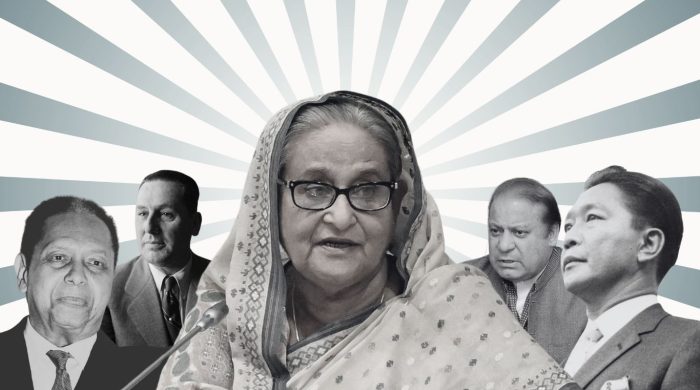Technology Can Save Cinemas

- Update Time : Tuesday, March 14, 2023
- 122 Time View

Once a vibrant part of the cultural landscape, cinemas are witnessing sharp decrease in number across the country. There has been a long list of closure and demolition of cinemas one after another. Perhaps the latest addition to the list is the last hall in Feni town — the Dulal Cinema Hall — that was taken down on February 20. Before this one, Malanch Cinema in Tangail was knocked down as the final one in the district on February 9, marking the end of an era. Each time such news of demolitions do the rounds on the social media page of the mainstream news media, it sparks debate and the page is awash with reactions from social media users. Whether their reactions reflect facts, pulling down cinemas is indeed a cause for concern for conscious citizens.
Cinemas have been an important part of Bangladesh’s cultural scene for decades. In the 1960s and 1970s, they were the prime source of entertainment for the masses, and film-lovers in droves flocked to theatres to watch films with their friends and families. Once, owners had to seek assistance from law enforcement to tackle the crowd during screening of blockbusters such as ‘Beder Meye Josna’, ‘Rupban’, and ‘Keyamat Theke Keyamat’. The businesses were profitable until 2000. However, the inroads of television and the growth of digital media in recent years have struck the death knell for cinemas. One after another, curtains fell on silver screens as the owners were left with no choice but to demolish them in order to make way for residential or commercial complexes.
Industry insiders put the blame on a number of reasons for the dwindling of cinemas, and a lack of investment in the industry is one of them. Compared to the other countries in the region, Bangladesh invests very little in the film and related industry, with most filmmakers and cinema owners having to rely on private funding to make their movie and its screening facility. For this reason, many movie theatre owners struggle to maintain their facilities. They are unable to upgrade to modern equipment or provide a comfortable viewing experience for audiences. Consequently, people turn away from theatres and often prefer to watch movies at home, where they can have a better viewing experience.
Another contributory factor to the decline of cinemas is the absence of necessary support from the government for the industry. Despite the tremendous cultural significance of movie theatres, it so far has given less attention when it comes to providing adequate support to let the industry flourish. The lack of government support means a bottleneck, which prevents cinema owners from being able to access financing, tax incentives, and other resources that could otherwise help them upgrade their facilities and attract more audiences.
It is pertinent to mention that closure and demolition of movie theatres also arise out of low quality Bangla film coupled with decline in audience. Even with the rich cultural heritage and talented filmmakers in the country, Bangla films with a few exceptions still leave a lot to be desired. The industry has been beset by issues such as low investment, lack of state support, necessary reforms, non-existence of a dedicated film development institute, failure to adopt modern technology and piracy, which in combination have stymied its growth and development. These in turn have exacerbated the slump in popularity of Bangla film and in the number of audiences, which eventually has resulted in the closure of cinemas.
Whatever the reasons, the shutdown of cinemas is not just a setback that the film industry suffers from but also a loss for the wider community. Cinemas were once a place where people from different backgrounds and social strata could come together and enjoy a collective experience. Therefore, the destruction of cultural heritage is not just a loss of physical structures, but also a wipeout of history, memory and identity. Buildings of cinemas are not mere structures, but symbols of the community and the shared experiences of generations. They are part of the cultural fabric that binds people together and gives them a sense of belonging.
Although there is no silver bullet, a number of ways are staring in the face to deal with the situation. As cinemas are inextricably intertwined with the film industry, improving films could eventually help the situation. Hence, the film industry needs to adapt to the changing times and embrace new technologies. Aside from appealing story and talented actors, technology has a crucial role in making quality films. By adopting digital filmmaking, utilising online streaming platforms, leveraging social media, exploring virtual production techniques, and investing in animation and VFX, the industry can produce high-quality films that movie lovers are gravitated to.
It goes without saying that the proliferation of digital technology has transformed the way people consume media, and cinemas in Bangladesh have struggled to compete with the convenience and affordability of streaming platforms and home entertainment systems. Nevertheless, there are several ways in which technology can be leveraged to curb the declining number cinemas in Bangladesh.
Upgrading movie houses with modern technology such as the use of 3D and 4D technology, high-definition screens, and new sound systems can attract moviegoers through enhancing the viewing experience. Online booking and ticketing systems can take the hassle out of the process to make it more convenient for movie lovers. While social media platforms such as Facebook, Instagram, and Twitter can be used to promote upcoming films and special events, partnering with streaming platforms, can enable cinemas to offer exclusive content to moviegoers. Besides, movie theatres can create a community atmosphere by hosting events and film festivals that bring people together to enjoy films.
Overall, technology can play an important role in rejuvenating cinemas in Bangladesh by enhancing the moviegoing experience, improving convenience, and creating a sense of community among film lovers. Most importantly, there is a need for greater collaboration and partnership between the government, private sector and civil society to promote and support the industry.
The writer is a columnist and IT Professional who works for Thakral Information Systems Pvt. Ltd. Email: farooque.hossain@thakral-bd.com





















